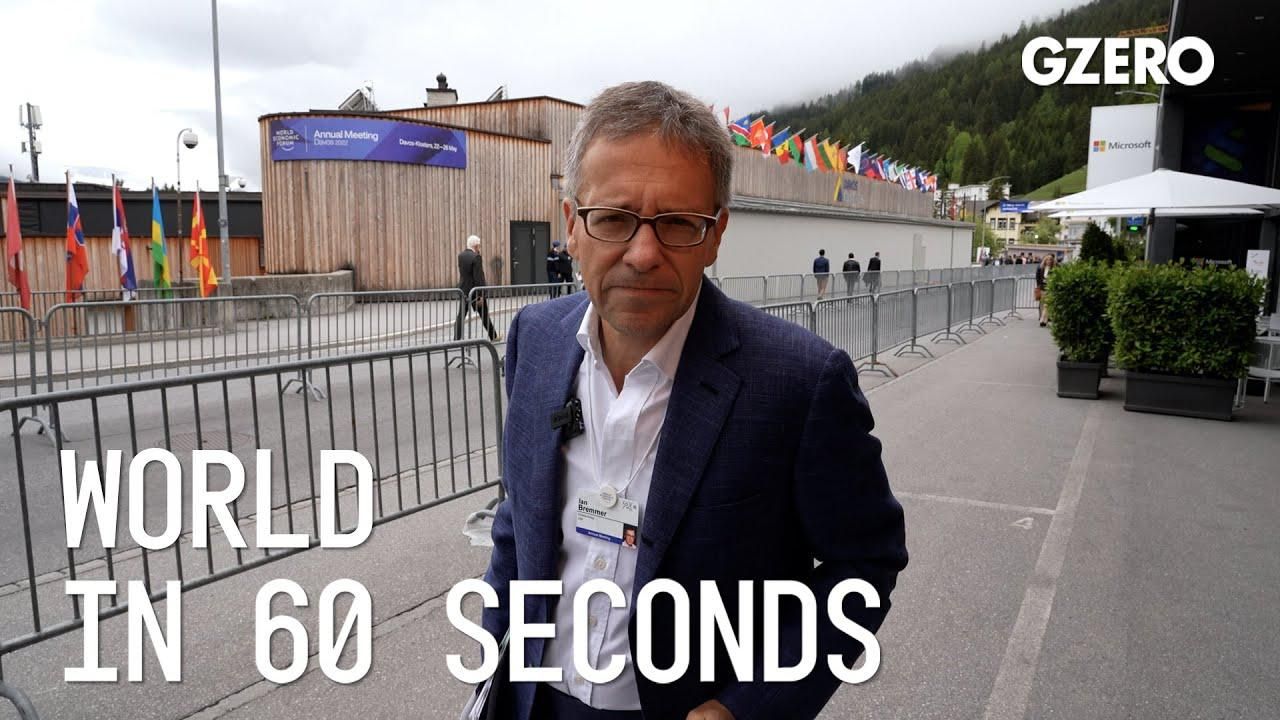
Ian Bremmer shares his insights on global politics this week on World In :60 from the World Economic Forum in Davos, Switzerland.
Is the Russia-Ukraine war dominating the conversation in Davos?
Yes, it is. There is only one side of the conversation here. Not true globally, but in Davos, there are no Russian delegates. And I mean, frankly, pretty much every single person attending is saying as much as they can in favor of Ukraine. You see a lot of people kind of dressing the part and certainly you're in Europe. And so as a consequence, the fact that this is a war in Europe that ends the peace dividend, it's been topic number one, topic number two, topic number three. Kept me pretty busy, frankly.
Are tensions between China and the United States escalating with Biden's recent pledge to defend Taiwan militarily?
It's kind of the third time he's already said this and it's the third time that the White House has walked it back. I think it's more important this time around because he did it in Asia and he also did it in response to a pointed question saying in the context of Ukraine, what about Taiwan? And he talked for a bit about it. He is like, "yeah, if it came to that, then we'd definitely defend them." That of course, is not official US policy. In the past, Biden's advisors have been privately kind of happy that he's making it seem like the United States has a more aggressive posture, especially because inside domestic US politics, that is generally speaking a popular position. Don't want to see Biden is soft on China. The reality is the United States doesn't need this position right now, especially because on the back of the United States leading a much stronger coalition in response to the Russian invasion of Ukraine and the Russian military not doing well, the fact is that Ukraine, there are lessons for the Chinese and Taiwan that are actually going relatively well for the United States. So why would you cause this trouble? I suspect the Chinese will be much cooler diplomatically over the course of the coming weeks.
How will Australia's new prime minister reshape its politics?
Frankly, on foreign policy, not so much. Strong member of the Quad, strongly supported the United States on Russia, for example. But when I think about the future, I would say climate change is the one big 180 that we're going to see in Australia's role globally. This is a country that had been focusing more on coal, had been one of the biggest, not climate deniers, but certainly slow moving in terms of renewability. Now you have a prime minister that wants to make Australia into a climate change superpower. That is an enormous issue that has been exercising, the Australian people dealing with massive droughts, for example, for a long time now. And it's a place that you'll see a little bit of positive movement in what's otherwise going to be a very challenging COP summit coming up in Sharm el-Sheikh later this year.
- Russian war crimes exhibit at Davos reveals civilian death toll in ... ›
- Is the world coming apart? Drama at Davos - GZERO Media ›
- A different Davos amid geopolitical conflicts and security issues - GZERO Media ›
- Ian Bremmer: Russia's war in Ukraine makes Davos "discomfiting" - GZERO Media ›
- Wolfgang Ischinger: Ukraine made German foreign policy go "out the window" - GZERO Media ›
- Highlights from Davos 2022 - GZERO Media ›
- The yet-unseen consequences of Russia's war in Ukraine - GZERO Media ›
- More Russia-NATO confrontation ahead in Ukraine war - GZERO Media ›
- What happened at Davos - GZERO Media ›
- Russian war crimes exhibit at Davos reveals civilian toll in Ukraine - GZERO Media ›
- Next steps for a world at a make-or-break moment: Davos 2022 - GZERO Media ›